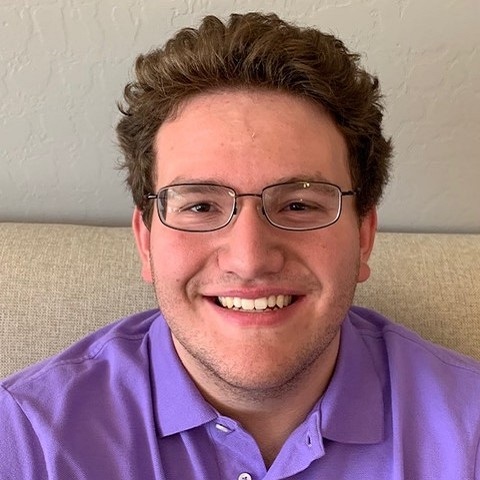Gregory Babić

- Home Institution: Arizona State University
- Program: REU at CLASSE
- Semester: Summer 2021
- Expected Graduation Year: 2022
- Mentor(s): Neil Stilin
Q&A
What is the research you are engaged in and what have you accomplished this summer?
The project I have been working on this summer is focused around designing a method to cool superconducting RF (SRF) cavities. Heat intercepts are added on the tube near the cavity to cool the cavity as close to 4.2 K as possible. My focus this summer has been to figure out the optimal size and placement of these intercepts via simulations for cooling the cavity to 4.2 K.
What are the impacts of your research for the general public?
SRF cavities are used in accelerators that are used in a variety of applications, but these cavities generally must be cooled to 2 K, which is very expensive and requires lots of equipment. Increasing the operating temperature to 4.2 K requires a lot less equipment and is much less financially demanding.
What did you enjoy most about this research/summer experience?
Even though I have been working with another group for two years, this was the first project in which I could make most of the decisions on the research, and I enjoyed being in the driver’s seat of the project. Within this project, there is also a convergence of several fields: mechanical engineering, accelerator physics, and superconductivity, and I always find these cross-discipline projects fascinating and enjoyable.
What did you find the most challenging about this research?
I have done this REU remotely, and that comes with its own set of difficulties. Other than the circumstances, the chief difficulty in the research was determining adequate methods for taking data, especially because it is simulated data and can’t be verified experimentally.
How has this experience changed your view about being a researcher?
The other projects on which I have worked have been fully in-person, and I knew most of the people involved quite well. Working on a rather short project remotely has solidified the importance of in-person interactions in research as well as working in a group in which most of the people know each other.
